Episode 51: Getting Fresh, Familiar Food to Farm Workers
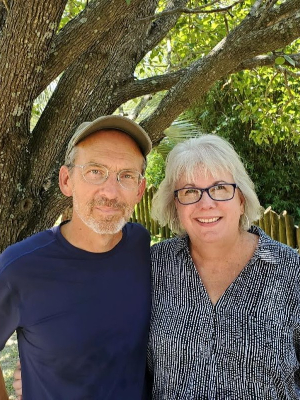
About the Podcast
Rick Burnette, co-founder and Technical Director of Cultivate Abundance, discusses “food solidarity” with us. His non-profit strives to feed food insecure, immigrant farm workers. The amount of money these workers make depends on how much they can pick. How many tons of tomatoes per day do they need to harvest to receive minimum wage? Listen to find out. The answer will surprise you.
About Rick Burnette
Rick Burnette is the co-founder and Technical Director of Cultivate Abundance, a nonprofit that addresses the ironic food insecurity of farmworkers in the agricultural community of Immokalee, Florida. Additionally, the organization provides assistance (e.g. technical resources and plant materials) in support of small-scale, community-based food production in the US and beyond.
Having earned B.S. and M.S. degrees in Plant and Soil Science at the University of Tennessee, Rick has spent the last four decades in international community-based development work, as well as nonprofit efforts in the US. Rick and his wife, Ellen, founded two agencies in Thailand that continue to serve smallholder farmers in that region.
Since 2017, Cultivate Abundance has focused its efforts on the food desert of Immokalee, Florida, where most of America’s wintertime tomatoes and other produce are grown. In cooperation with local partners, including Immokalee residents, Misión Peniel – a food pantry and social service provider – as well as other agencies, Cultivate Abundance is growing, collecting, and sharing dozens of varieties of locally-grown produce of cultural preference among the Haitian, Guatemalan, and Mexican farmworker community.
In 2020, Cultivate Abundance handled 14 tons of food amounting to 74,000 food servings shared among approximately 400 Misión Peniel clients each week.
In addition to his Cultivate Abundance duties, Rick manages domestic disaster response for the Cooperative Baptist Fellowship.
Discussion Takeaways
- Immokalee, Florida grows much of America’s winter produce, but that part of the state is also a food desert. Most of the community lives in trailer parks.
- We must take a broad approach to make sure everyone has access to food.
- It is going to take an alliance, coalition, and network of many people to form a mosaic of food production across our nation.
- Rick grows food and an alliance of gardeners, so his program can be nimble and careful with what they grow.
- People who receive food from Cultivate Abundance are generous. When they can, they give back to their community and often share some of their food heritage.
- The power of small-scale production is incredible! 1/3rd of the world’s food is grown by small famers with less than 10 acres.
- If you grow a few tomatoes, it matters! Every bit of donated food counts!
- The fact that there is a food desert where mass quantities of the nation's produce is grown is a food justice issue. Field workers in these communities have to pick 2,000+ pounds of food everyday just to make minimum wage. These poor living and working conditions are problems that need to be addressed.
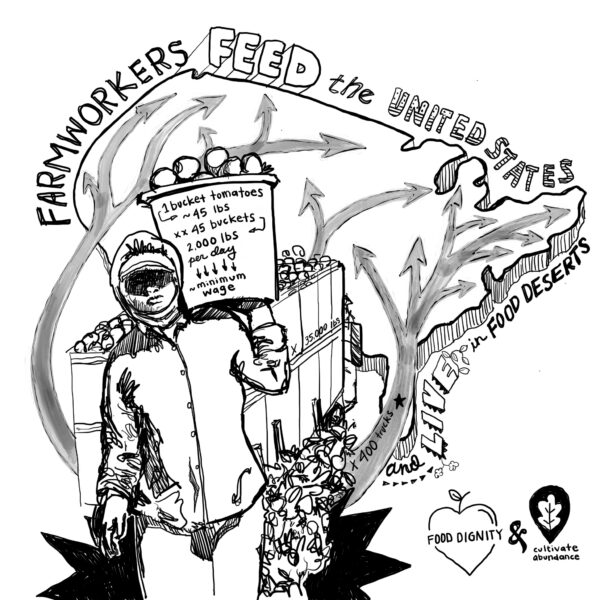
- Donation gardens can serve refugee populations in a special way. They grow the foods that recipients are used to and in quantities that they need.
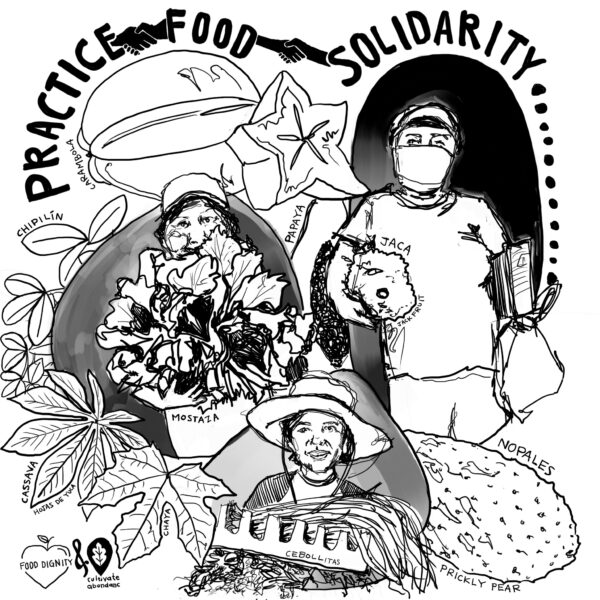
The term “food solidarity” recognizes that, even if people cannot grow their own food, they can be a part of the food system by learning about where their food comes from and how it affects the environment, the growers, and consumers. This concept is also about the growing and sharing of food too.
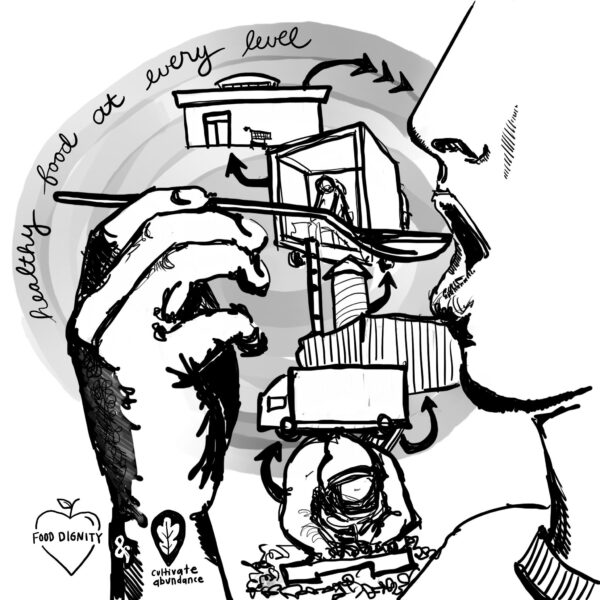
The beautiful images above were created by Rebecca Garofano, our Food Dignity Institute Lead and Illustration Specialist. You can find more of her work at @VeggieDoodleSoup on Instagram and at her website veggiedoodlesoup.com.
#1 tip to improve access to healthy food
The term “food solidarity” recognizes that, even if people cannot grow their own food, they can be a part of the food system by learning about where their food comes from and how it affects the environment, the growers, and consumers. This concept is also about the growing and sharing of food too.
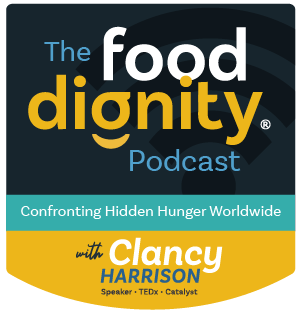
Each week on the Food Dignity® Podcast, the Food Dignity® Movement’s Clancy Harrison hosts a wide variety of hunger experts and other people making changes on the frontlines. Join us as we dive deep into conversations that will change the way you think about food insecurity.
Listen to our trailer!
Want to learn more about how we might work together?
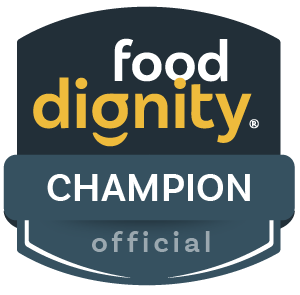
Fight hidden hunger by becoming a
Food Dignity® Champion and take the HIDDEN HUNGER PLEDGE >


